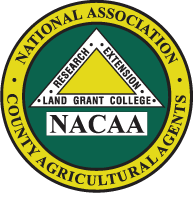Journal of the NACAA
ISSN 2158-9429
Volume 1, Issue 1 - July, 2008
North Georgia Apple Integrated Pest Management Program Improves Producers' Confidence
- Wheeler, M.J., University of Georgia Cooperative Extension, Gilmer County
ABSTRACT
Apple production in north Georgia has a long and productive history. Many of today’s apple producers are second and third generation farmers. Their knowledge about producing high quality fruit is almost second nature. Over the years, as the apple industry in north Georgia has transitioned from an early, wholesale market to a roadside, retail market, the number of producers has reduced by 90%. Another factor that has caused this sharp reduction in apple producers has been the switch from easy-to-use pesticides to more environmentally friendly, species specific pesticides. In general, these pesticides require extensive knowledge of how and when to apply them. Beginning in 2003, the Gilmer and Fannin County Cooperative Extension offices developed an intensive integrated pest management (IPM) program for the apple producers in this two county region. The North Georgia Apple IPM program provides information to the producers about fire blight, Erwinia amylovora, prediction and tracking the life stages of three different moth insects throughout the growing season using degree-day models (Smith, 2002; Steiner and Lightner, 1996; NCSU AG-572). The three moth species targeted by the IPM program are Oriental fruit moth, Grapholitha molesta Busck, codling moth, Laspeyresia pomonella (L), and tufted apple budmoth, Platynoda idaeusalis. In a recent evaluation of the IPM program, all of the growers said the program is worth the effort because of the data and other information they gain from the program.PDF Version
